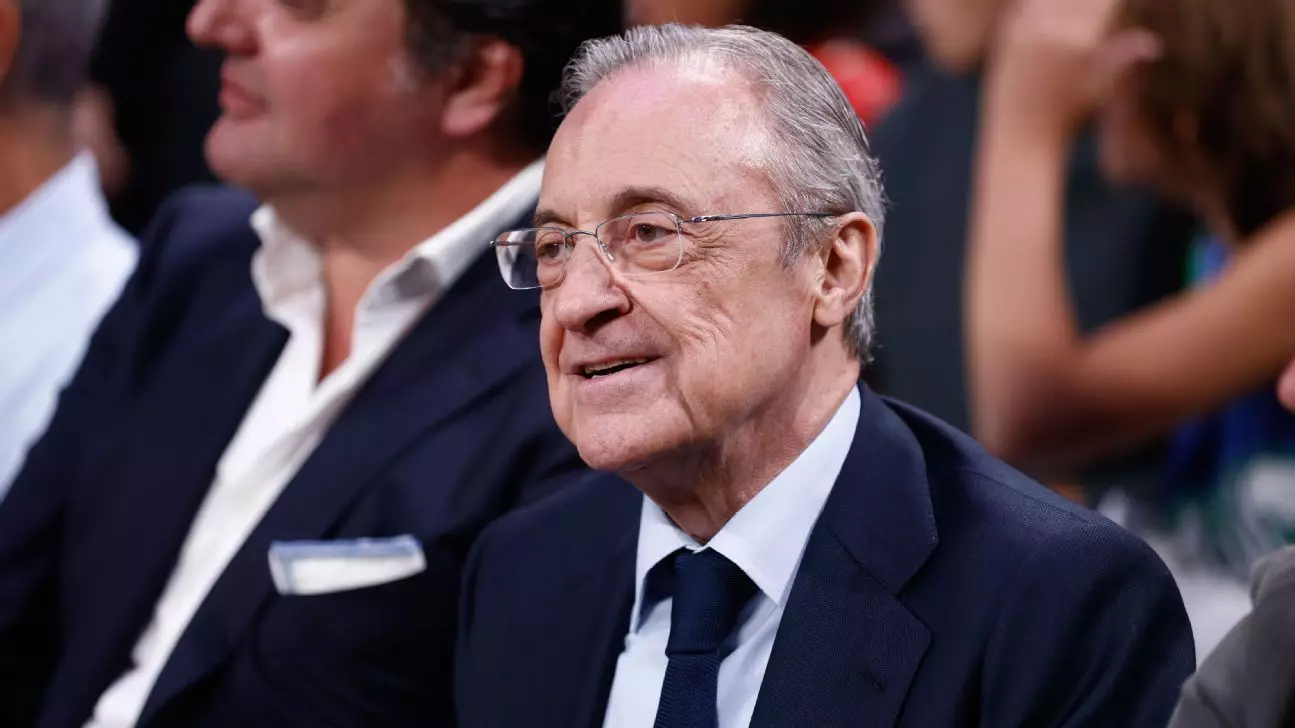In the competitive arena of football, individual honors often ignite passionate debates amongst players, fans, and decision-makers alike. The recent controversy surrounding the 2024 Ballon d’Or selection has added layers of complexity beyond the expected sulking of disappointed teams. Central to this debate is the criticism directed at a group of journalists, whose voting behavior has raised questions about credibility, representation, and bias within the voting process. Particularly polarizing is the reaction from Real Madrid president Florentino Pérez regarding the non-selection of Vinícius Júnior, a prominent player of the recently crowned La Liga and Champions League champions.
During Madrid’s Annual General Meeting, Pérez lamented the failure of journalists from smaller footballing nations—namely Namibia, Uganda, Albania, and Finland—to award Vinícius the recognition he was presumably due. His assertion that these journalists’ votes were irrelevant because they hail from lesser-known footballing nations draws borders that can alienate the soccer community. The sentiment behind his comments reflects a common bias within sports journalism and voting processes—that the opinions of individuals from traditional football powerhouses hold inherently greater weight than those from emerging countries.
In his pointed criticism, Pérez also questioned the integrity of the voting procedure, advocating for a more “independently organized” system featuring respected voices from the football world. However, such a stance can inadvertently devalue the input from journalists who are authentically engaged in global football narratives, irrespective of their national backgrounds. Does the value of a vote diminish simply because it comes from a less celebrated football nation? Pérez’s perspective raises a broader issue about inclusivity and diversity in sporting recognition.
Enter Sheefeni Nikodemus, a Namibian journalist who responded to Pérez’s criticisms with formidable clarity during a radio segment on Cadena SER’s El Larguero. Nikodemus’s rebuttal serves not just as a defense of his own voting process but as a broader critique of elitism permeating discussions around football and awards. He provocatively questioned whether the magnitude of a nation’s football prowess should dictate whose opinions are deemed valuable.
By invoking the notion of national pride and representation in football, Nikodemus sheds light on a significant aspect of sports media discourse. His critique suggests that disregarding the opinions of journalists from emerging football nations may reinforce systemic inequalities and diminish the rich tapestry that global football presents. In essence, he points out that just because certain countries are not recognized as football powerhouses does not render the experiences or insights of their representatives insignificant.
At the heart of the Ballon d’Or debate lies the critical question of performance versus recognition. While Vinícius Júnior certainly showcased skill and finesse last season, leading Real Madrid to major victories, his performances in international duty have raised eyebrows and arguments surrounding his worthiness. The contrasting achievements between him and Rodri—who excelled with Spain during the Euro 2024—underscore the difficulty in measuring a player’s overall contribution.
Ballon d’Or voting involves complex metrics, whereby journalists rank players based on club and international duties. This convoluted process can leave room for unintended biases and disparities, particularly when weighing performances during club versus country seasons. Rodri’s successful showing with Spain adds formidable weight to his case, showcasing the intricate balancing act between club performances and national contributions in a player’s overall assessment.
As the dust settles on yet another Ballon d’Or, the ensuing controversy emphasizes the necessity for both inclusivity and transparency in player recognition. While Pérez’s comments reflect a frustrating reality for Real Madrid supporters, Nikodemus’s response points towards the systemic biases that may often be overlooked in these high-stakes discussions.
Football, at its core, is a global game—a melting pot of diverse narratives and voices that deserve recognition. As the media landscape evolves, embracing contributions from varying football cultures isn’t just about fairness; it’s about enriching the soccer discourse itself. Recognizing this necessity could elevate future awards beyond benchmarks of performance, integrating them as a celebration of football’s rich, global tapestry.

Leave a Reply